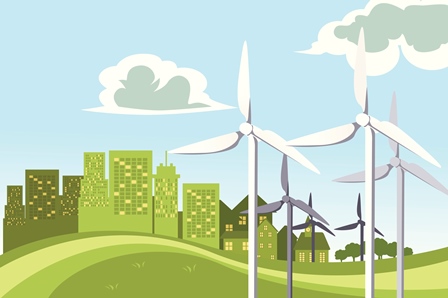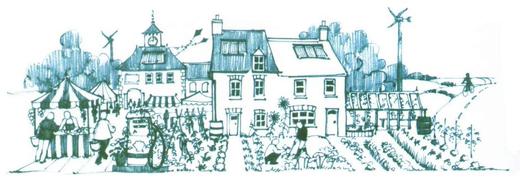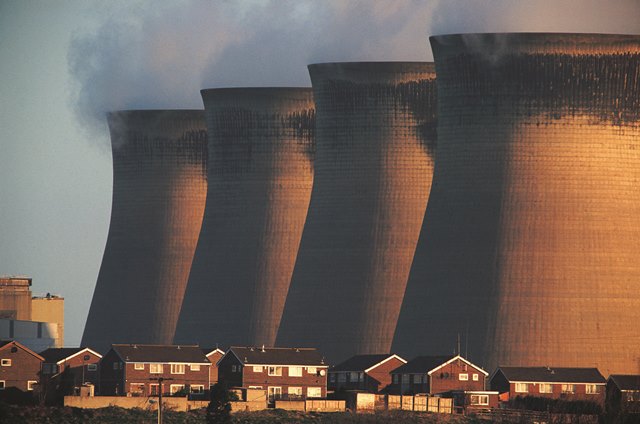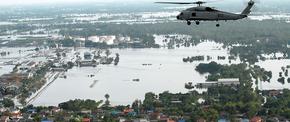The views expressed in our content reflect individual perspectives and do not represent the official views of the Baha'i Faith.
 Recently I received a thoughtful but despairing letter from a friend and colleague who teaches science:
Recently I received a thoughtful but despairing letter from a friend and colleague who teaches science:
Coal fired power station, Ferrybridge, UK
How do you teach about climate change and leave on some sort of positive note?! Four years ago when I taught my Environment course there still seemed a glimmer of hope that the nations of the world might take action. Now, post-Copenhagen, post- Dubai, that glimmer seems fast fading, and it seems most unlikely that we’ll avoid going over the 2 degree rise in temperature and the runaway climate change everyone talks about. I know there are lots of little good things happening, but really, it seems like we’re headed for MAJOR climatic changes or disaster. How do I leave students with any feeling of empowerment?
This question speaks directly to one of the hardest and most pressing issues of our age – what world will we leave for our children and grandchildren? I thought about my answer carefully and for a long time. This was my reply:
Your question is a good one, and one that many of us who are concerned about climate change ponder regularly.
I’m not sure I have an answer, except to encourage your students to keep learning about the issue and talking with their friends and neighbors about it. And at this stage it helps to focus on both adaptation and mitigation. We know there will be impacts we are going to have to deal with. How do we tap the creative talents in a community to mobilize the necessary resources?
A key insight I’ve been gaining is that our ability to address the challenges posed by climate change (or any of numerous serious stressors) is extremely dependent on the level of social capital we have established in our communities. Research has shown that communities with strong social ties are much more resilient than those without them. A recent piece in The New Yorker (“Adaptation: How can cities be climate-proofed?” By Eric Klinenberg) related how the social fabric in the community can literally mean the difference between life and death when it comes to the ability to deal with disaster.
So it is extremely important that, in addition to reducing greenhouse gases, we focus on building resilient societies and tapping the collective genius that lies within them. One effort to do this is a grand social experiment called Transition Towns. I think it’s a good initiative that is beginning to engender a sense of hope and to awaken communities around the world to the possibilities inherent in collective action.
 Of course all this is very compatible with a Baha’i perspective. See: Why act on climate change now?
Of course all this is very compatible with a Baha’i perspective. See: Why act on climate change now?
In fact the Baha’i emphasis on local community building is critical to strengthening the social fabric that is so essential. This quote, from the Baha’i International Community’s statement on creating sustainable communities, spells out the link between building communities both materially and spiritually:
In the long term, however, community-building efforts will succeed only to the extent that they link material progress to fundamental spiritual aspirations, respond to the increasing interdependence among the peoples and nations of the planet, and establish a framework within which all people can become active participants in the governance of their societies. – Baha’i International Community, 1996 Jun 07, Sustainable Communities in an Integrating World.
We need to retain a sense of hope. Without that, all is lost. The hope I feel is rooted in the realization that great difficulties can be overcome when we work together. It is so important to strengthen the social fabric of our communities, and we can have fun in the process! Somehow we have to work on this — and climate change is just one of the forces pushing us in that direction.


















Comments
Sign in or create an account
Continue with Facebookor